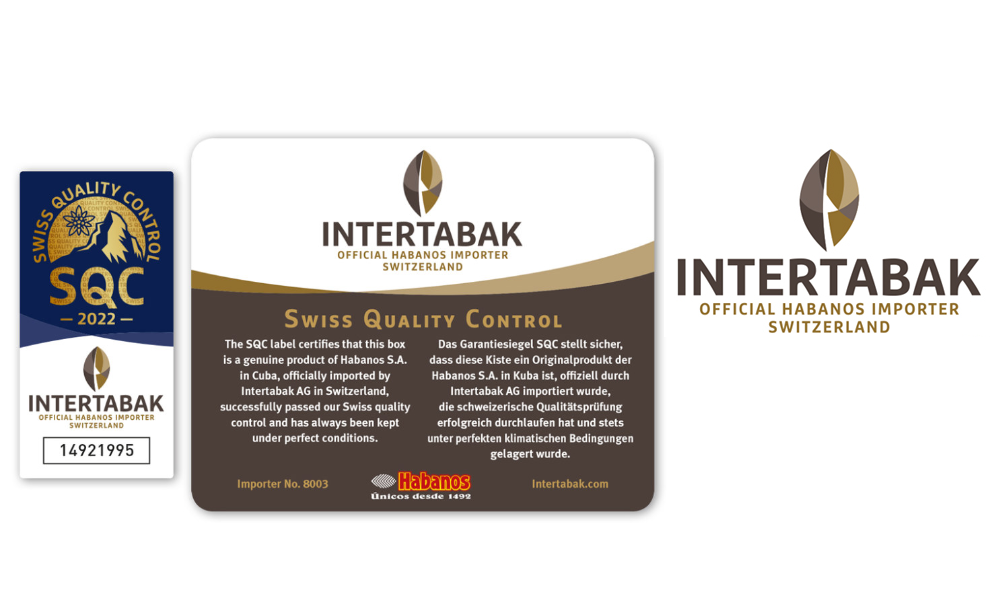
Tabatiere Küsnacht and the deep love of the Cuban cigar
Tabatière Küsnacht and Verena Vollenweider Schlumpf. Actually, these are not two meanings of two terms, but one meaning. Because Tabatière Küsnacht and Verena Vollenweider Schlumpf are one. I spoke to her and found out some fantastic things about her and her business. Küsnacht is located on Lake Zurich in Switzerland.

You don't know the face on the phone
We have a telephone appointment for the interview. It rings, she picks up. I hear a friendly voice. You know how it is: you hear a voice on the phone, but you don't know the face, and inevitably you have a picture in your head of what the person you're talking to looks like. I have an advantage. I know what Verena Vollenweider Schlumpf looks like. The photographer Christian Schmid has already been to see her:

But she probably doesn't know what I look like. Let's make up for that:

"How are you currently experiencing the availability of Cuban cigars?" I ask her first. Her answer surprises me. "You know," Mrs. Vollenweider Schlumpf begins, "as they say: FormerlyCuba cigars were simply sold. Customers came into the store, said which Cuba cigars they wanted and bought them." She remains silent for a moment and continues: "But today I see this shortage as an opportunity. Because now we can advise customers again and show them alternatives when it comes to cigars."
"Do you mean alternatives to non-Cuba cigars?" I ask her. "Yes, too," she explains, "but you know, my love belongs to Cuba cigars. We have Habanos Specialist status," she continues, "and are therefore privileged. We get a better allocation from the official importer (Intertabak AG) than a tobacco store without Habanos status."
I realize that Cuba and the cigars from there are obviously very close to her heart. "What do Cuban cigars mean to you?" I ask. "I live for these cigars," she replies as if shot from a pistol. There's passion behind it, I think. She continues: "My late husband also loved Cuban cigars - he only smoked Cuban cigars." I can tell from her story and her voice that Verena Vollenweider Schlumpf has a great story behind her. Will I be able to coax it out of her?


During her apprenticeship, she fell in love with her future husband
She did her apprenticeship at the Nägeli tobacco store in one of the branches in the Zurich region. It was here that she realized her love of Cuban cigars - especially Davidoff cigars. "They were the best cigars I knew at the time. I still rave about them today." She met her future husband during her apprenticeship. He was a friendly customer with exquisite taste. Over time, the two fell in love. Marriage followed as the next step sometime after her apprenticeship. Verena's professional career took her into various sectors.

In 1986, the opportunity arose to take over the Tabatière Küsnacht because the owner was retiring and had no successor. "Verena," said Kurt, her husband, "how about it: would you be happy to take over this store? It would be a win-win situation for all of us: if I buy you the store, you get your dream job and I always get the best cigars - what more could we want?"
A second later she replied: "Yes, of course!" What a joy! She could finally indulge her passion. Because she and her husband had enjoyed many Cuban cigars over the years before (and after, of course).
A love of Cuban cigars and a quiet moment
Her voice brightens as she explains: "In 1994, my husband and I visited Cuba for the first time. We were on a trip around the world at the time. We explored the island in a rented car. It was an adventure! I could tell you stories...", I hope so, I thought, and I was all ears to what she was telling me. She explains how they experienced the road conditions, how warm, hospitable and uncomplicated the Cubans were, how they were allowed to watch the tobacco harvest - and, yes, it was simply fantastic.
"Then one day we came to Trinidad. Someone there wanted to sell us a box of counterfeit Montecristos. We pretended to be interested because, as tobacco lovers of Cuban cigars, we wanted to know what was going to happen. But, you know, my husband was more interested in the Cuban woman's décolleté than in the fake cigars." Verena laughs out loud and so do I.


Then she goes quiet for a few seconds. I give her time to think. Her voice drops a little as she continues. "On my last trip to Cuba, I was alone. I took a rented car to Pinar del Rio to Robaina Farm. I planned to stay in a hotel or in a casa particular (private accommodation). Unfortunately, I forgot my passport at the hotel in Havana. Nobody let me stay overnight because of this. In the end, I found a hotel in Pinar del Rio and was able to stay in a room overnight. It was a bit scary there. There was a big party going on and people were shouting and banging in the night.
The next day I arrived at Robaina's, but Hirochi Robaina (the nephew of the legendary Alejandro Robaina) was away on a trip. I sat down in the famous rocking chair, got something to drink and lit a Cuban cigar. I sat here, absorbed and peaceful, and recognized a wonderful, quiet and happy moment."
Silence.
Then she says: "This moment gave me the confirmation that I am in the right business. Cuba cigars are my life."
Why should you hurry to light a cigar (jet flame) if you spend an hour with the cigar afterwards?
- Verena Vollenweider Schlumpf
Visit Tabatière Küsnacht, get advice and shop
Cuban smokers are more tolerant of cigars
These are wonderful anecdotes from her "cigar life", aren't they? I'm sure Verena Vollenweider Schlumpf could tell me a lot more. It would make an interesting documentary! She is a special person, I think. So I ask: "What kind of people shop at your store?" She clears her throat and says: "I have all kinds of customers, from workers to bankers and entrepreneurs. With big or small wallets. I live mainly from my regular customers, I have a personal relationship with them. I've noticed for a long time that Cuban smokers are more tolerant of cigars."
"What do you mean?" I ask. "If a wrapper leaf isn't that great, or a cigar doesn't draw very well in rare cases, then a Cuban smoker likes to say: 'That's a natural product, it can happen. Especially when you know how tobacco is grown and processed in Cuba until the cigars are rolled and exported. It's not comparable with other countries where cigars are made."
"What do your customers buy more of: Cuba or non-Cuba?" I ask. "70% Cuba, 30% Non Cuba," she replies and adds: "It's clear why that is: I love Cuba cigars. I love them, it's as simple as that."
Isn't it wonderful, this love and this passion? ?
Something I would also like to know: What are her top 3 favorite Cuban cigars? Zack - I get a quick answer: "Cohiba Siglo II, H. Upmann Half Corona and the Cohiba Maduro Genios."


The recommendation for beginners
I want to know what she recommends to a beginner who would like to try cigars. "I recommend three different countries," she tells me. "There's always a Cuba cigar. I often recommend the Hoyo Epicure No. 2 and then two cigars from other countries. I make sure that they are rather light cigars, but still have a good aroma. I recommend smoking the cigar for the first time after dinner. I explain to him how to cut it, light it and puff on it. He should keep the cigar ring from the cigar he liked and bring it back to me the next time he goes shopping. That way I know which flavors he likes and I can recommend more cigars to him."
Our conversation is coming to an end. It was an extraordinary pleasure. What a love and passion for Cuban cigars I was able to experience with Verena Vollenweider Schlumpf. Thank you for that!


Resources on the topic
- Photos of this post: FotoWerk 132

Hey Vasilij,
Thank you for the great report. I live in Zumikon, just a 10-minute drive from Kuesnacht, and have been a regular customer at the Tabatière for several years. In addition to Mrs. Vollenweider Schlumpf's very competent recommendations for cigars - which I often don't need as I now know what I like - there's also a small but fine selection of spirits, especially whisky from Scotland and rum, and sometimes I even find a real gem there. In any case, I can only recommend the store and am already looking forward to my next visit!
Hello Marcel, hey, that's great - the world isn't that big ? If you think about it the next time you go shopping, please give Verena a big hello from me. LG, Vasilij
Simply wonderful!
A story that only a peaceful and enjoyable life can write.
It seems obvious to visit Küsnacht ...
Right? Then tell us about it!
Absolutely!